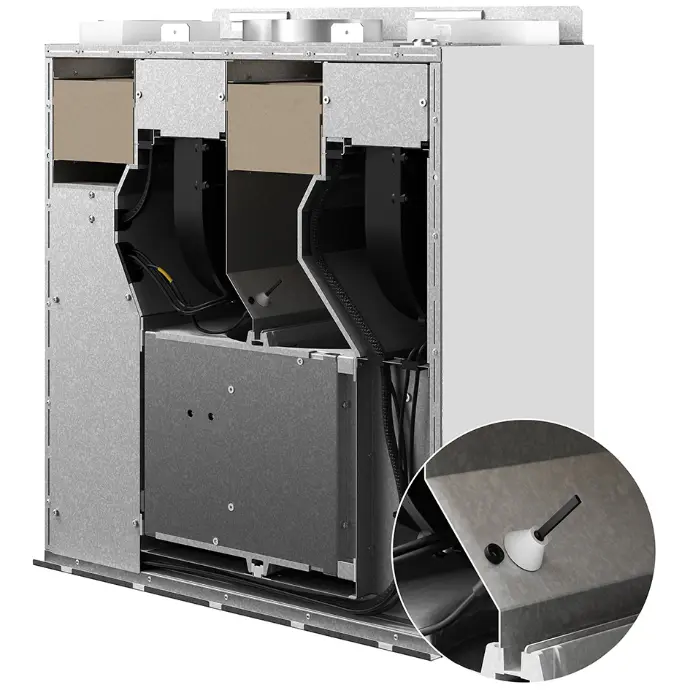FLEXIT ventilation units: Sustainability and a healthy indoor environment without compromise
FLEXIT air handling units are designed to ensure maximum hygiene and minimal environmental impact. Unlike brands that use materials like EPP (expanded polypropylene) and EPS (expanded polystyrene), FLEXIT consciously avoids these materials in the construction of its units.

Why does this matter?
Studies from the USA have shown that ventilation systems containing EPP and EPS are associated with an increased risk of mold growth, condensation, and other harmful microorganisms. These materials have even been banned in some U.S. states and officially classified as harmful to health. The reason? They can be a direct factor in the development of Sick Building Syndrome, which endangers the health of occupants due to polluted indoor air.
Instead of these materials, Flexit utilizes design solutions that:
- Minimize condensation and mold growth.
- Ensure long-term hygiene and cleanliness of the unit.
Durability and ecological footprint
While competitors (e.g., brands using EPP and EPS) often require the replacement of key components, such as enthalpy exchangers, after just 5 years, Flexit guarantees a minimum 30-year lifespan for its units. This exceptional durability significantly reduces waste production and the carbon footprint associated with frequent part replacements.
Although transporting Flexit units from Norway to Slovakia poses an environmental challenge, the overall carbon footprint of Flexit remains lower since their units do not require repeated replacement of key components.

Why choose FLEXIT?
No EPP or EPS – lower risk of condensation and mold that harms health and the indoor environment.
Sustainable and environmentally friendly solutions.

A minimum 30-year lifespan without frequent component replacements.
Protection against Sick Building Syndrome, a recognized health issue in the USA linked to poor ventilation.
FLEXIT is not just a choice in ventilation – it is an investment in health and sustainability.



